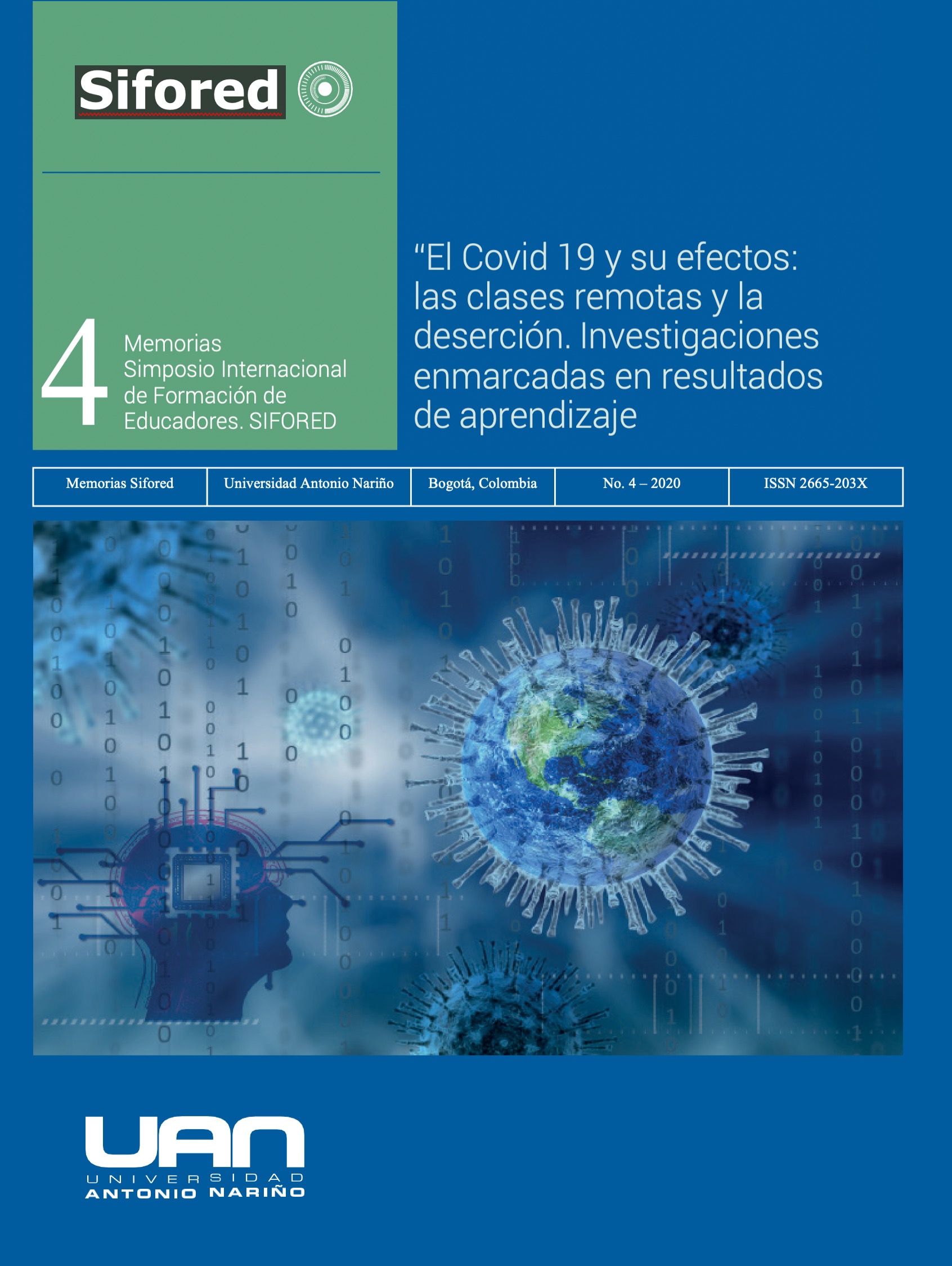El acto educativo en el marco de la pandemia, un ejercicio comparativo entre dos instituciones educativas de bogotá
Keywords:
uso de TICsAbstract
Within the framework of the response to the global contingency due to Covid -19, a comparative exercise is proposed based on the observation of two experiences in educational institutions in Bogotá about the way in which the educational act is developed, following three categories: use of ICTs, student participation and presentation of content in the digitally assisted classroom. Based on these, guiding questions were prepared for the collection process (observation of three videos from each institution), description and analysis of information.
Among the main findings, the creativity and resourcefulness of teachers and students is highlighted to develop in the best way the classes assisted by technology, using basic tools for communication, interaction and action, in the midst of the scarce installed capacity. In this sense, the participation of students, which can be classified as active, could be enhanced through the use of free, restricted and institutional ICTs. In those that have to do with the presentation of content, the most relevant device is the voice (oral presentation of the teacher) sometimes supported by Microsoft Word and Slideshare presentations. In accordance with the foregoing, the commendable work and adaptability of teachers and the importance of qualification and installation of capacity at the institutional level are shared as conclusions to continue offering quality education.
Downloads
References
COLL, C. (1987). Psicología y curriculum. Barcelona: Laia.
COLL, C. (1987). Significado y sentido en el aprendizaje escolar. Reflexiones en torno al concepto de aprendizaje significativo.
Comisión Europea (2015). Evaluation of legislation, policy and practice of child participation in the EU.Research summary prepared by ECORYS, Oficina de Publicaciones de la Unión Europea, Luxemburgo.
Delors, J. (1996). La educación encierra un tesoro. Informe a la UNESCO de la Comisión Internacional sobre la educación para el siglo XXI. Madrid. Santillana, Ediciones UNESCO, pp.39-54.
Ibarra, J. (2018). La sociedad del conocimiento y la sociedad de la información como la piedra angular en la innovación tecnológica educativa. Revista Iberoamericana para la educación y el desarrollo educativo. 3 - 24.
López, V. (2016). Educación Comparada: Conceptualización científica. El análisis comparativo como método de investigación aplicada. Santa Clara: Editorial Feijoo. Pág. 42-60
Tello, E. (2011). Las tecnologías de la información y comunicaciones (TIC) y la brecha digital: su impacto en la sociedad de México. Rev. RUSC, 4 (2).
Downloads
Published
-
Abstract259
-
PDF (Español)96
How to Cite
Issue
Section
License

This work is licensed under a Creative Commons Attribution-NonCommercial-ShareAlike 4.0 International License.


 Portal de Ciencia Abierta
Portal de Ciencia Abierta